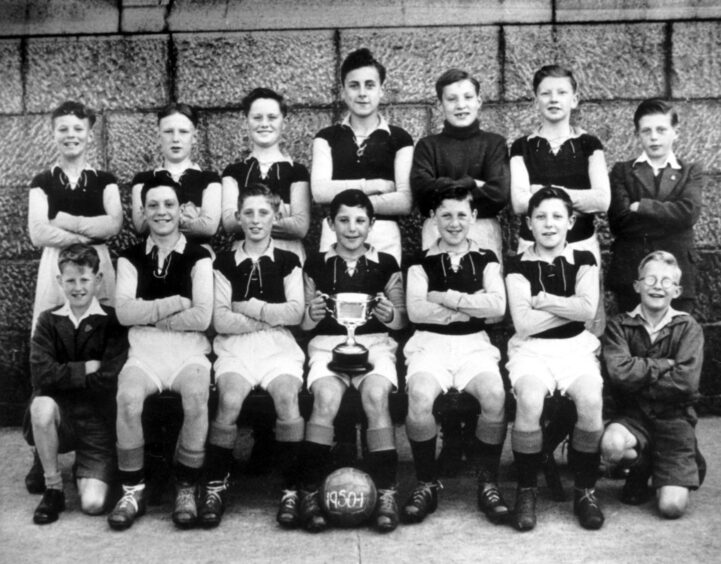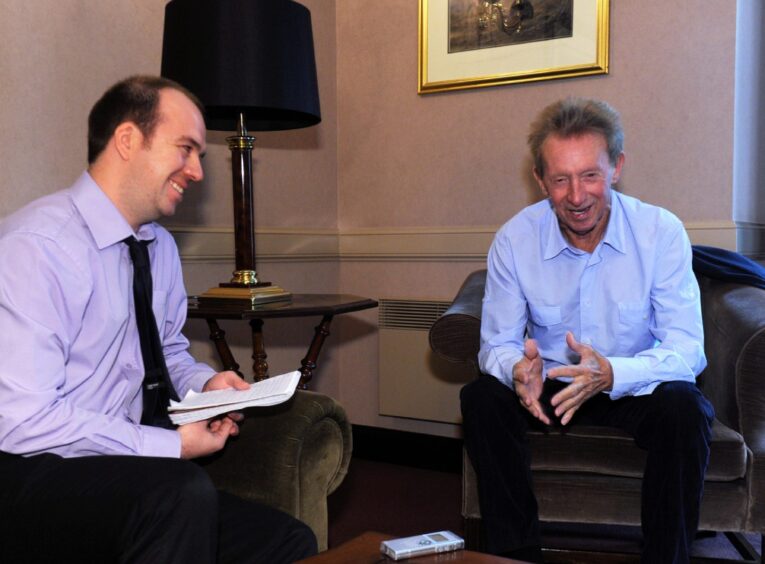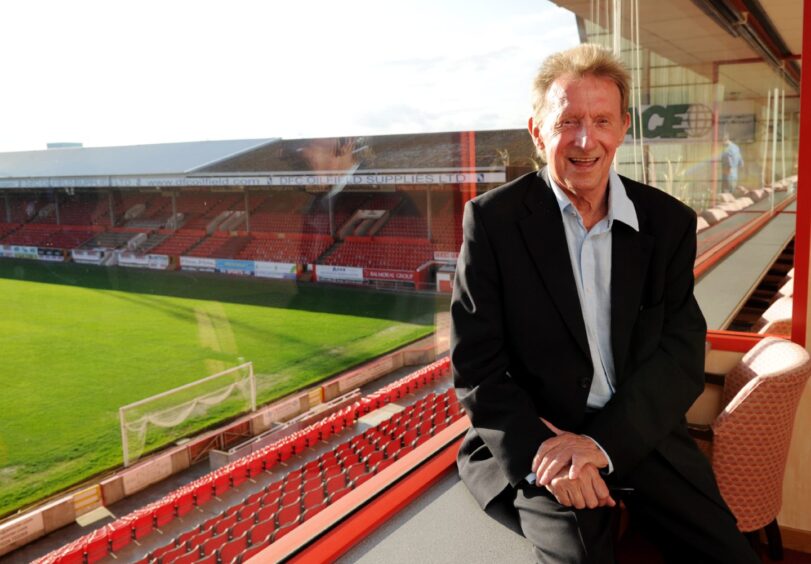It was for the best that Denis Law’s eye surgeon was not aware of the responsibility bestowed upon them.
The pressure that day would have ramped up quite significantly had he or she known the fate of Scotland’s greatest footballer and Aberdeen’s favourite son relied on them improving Law’s sight.
Law’s rise from being a puny, slight youngster with poor eyesight to being crowned the best footballer in Europe and Ballon d’Or winner in 1964 remains hugely inspirational.
He suffered from strabismus, which left him with squint eyes, and he grew up wearing thick NHS spectacles.
Remarkably, as a youngster he would play football with one eye closed as this allowed him better focus.
A life-changing operation
Despite this obstacle, the endless hours of playing football on the street with his friends helped him develop enough talent for Huddersfield Town to take a chance on him.
They arranged for him to undergo an eye operation to correct the squint – and although it didn’t give Law perfect vision, it improved things immeasurably and he was able to play football with both eyes open. The operation also gave him the confidence to go on and forge a highly successful football career.
As a player Law was brave, tenacious and skilful. He had to be brave given how ferocious defenders were in those days.
He wanted to play in midfield and be in the thick of the action but his finishing prowess meant he made his name as a forward.
He was highly regarded at Huddersfield, Manchester City and Torino but it was at Manchester United where he was adored and enjoyed his peak years. He became a club legend as part of the Holy Trinity alongside Bobby Charlton and George Best. Only Wayne Rooney and Charlton have scored more goals for United than Law’s total of 237.
Sadly injury meant he missed United’s European Cup final win against Benfica in 1968 in what should have been the crowning achievement of an illustrious career.
Generous with his time
I was fortunate to meet Denis Law in a hastily arranged interview at the Marcliffe Hotel over a decade ago.
I thought other media might have been there but it turned out to be just myself and our photographer with Denis, his friend and former Manchester United teammate John Fitzpatrick and the Aberdeen vice-chairman George Yule who had organised the interview and also taken along Derek McInnes’ son Jack to meet Scotland’s joint record goalscorer.
Law was known as The King and it certainly felt like going to interview royalty.
He had had hung up his boots long before I was born but you didn’t have to see him play live to appreciate his legacy.
The thing that always struck me when you watched footage of him in his pomp was the variety of goals he scored, his clever movement and his determination to put the ball in the back of the net – even if it meant taking a whack from a defender.
Any nerves I had about interviewing a Scottish footballing great soon disappeared as soon as I shook his hand.
He asked if we were related when I introduced myself and I told him sadly not.
He was very considerate and generous with his time as I made my way through a list of the pre-prepared questions I had agonised over before the interview.
Law had hoped for Dons chance
Law was going to be the guest of honour at Pittodrie the following day for a match between the Dons and Dundee United.
I asked him if he wished he had spent time at Aberdeen during his career.
His reply: “I always wanted to play for Aberdeen but I didn’t get the opportunity.
“Do you think I wanted to go to Huddersfield as a young boy at 15 years of age when I was living in Aberdeen?
“I would have loved to have played for Aberdeen instead of having to leave home.
“I didn’t know anyone at Huddersfield.
“I was fortunate as the manager Andy Beattie realised I was a bit homesick and got another Aberdeen boy, Gordon Low, to come down and he went on to have a good career as well.
“It was 11 hours on the train to get to Huddersfield in those days so I would have loved to have stayed and played for Aberdeen.”
If not being signed by Aberdeen was a source of remorse for Law, it must certainly be a huge regret for every Dons fan too.




Conversation